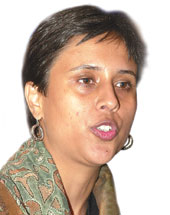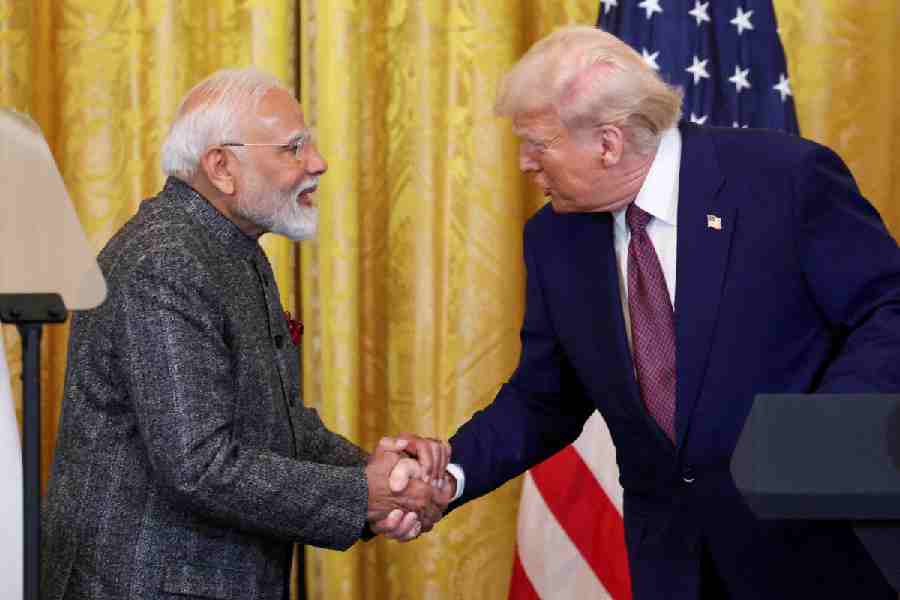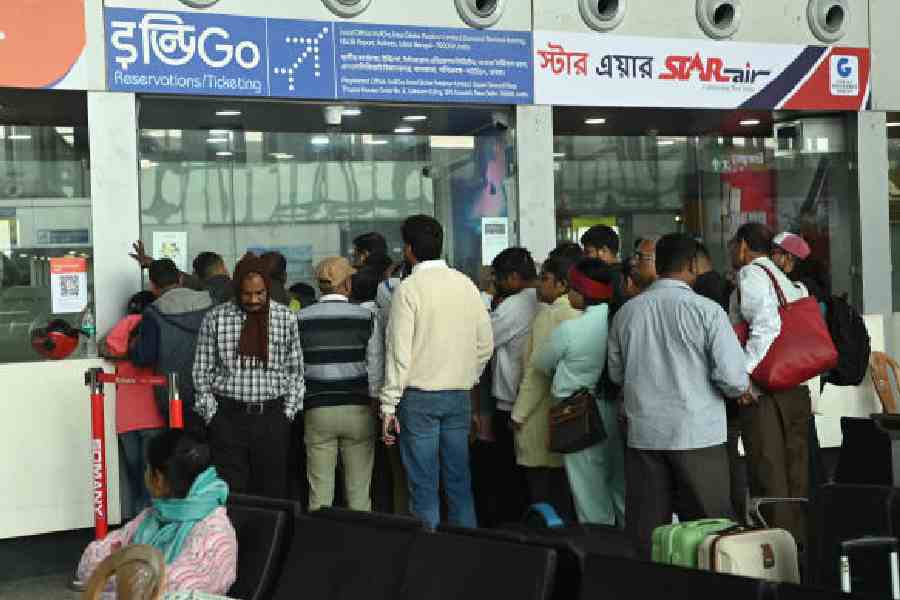 |
| Oil?s well: Mani shankar Aiyar speak easy: Barkha dutt legal eagle: Kapil sibal write choice: amitav ghoshgoing strong: The college campus photo: prem singh |
Arun Lal calls it ?the mafia?. He?s joking, of course. But he has a point there. ?They are simply all over the place,? he reasons. ?No matter which corner of the world you go to, they?ll get you.?
The former Indian cricketer should know, for he is one of them as well. The network Lal has in mind is an old boys? club ? possibly the most powerful informal alliance of people in the country today. And as their alma mater airs its red carpet for a year-long celebration, red-and-blue ties are being ironed as the old boys gear up for action.
St Stephen?s College, Delhi, the definitive bastion of the liberal arts and sciences in India, turns 125 this year. A ceremony to mark the jubilee year was held last Sunday at the Sheesh Mahal in Chandni Chowk, where the college was first housed. Many other events are slated to follow. Dates for monthly Friday lunches, each hosted by a member of the alumni, have been booked in advance well into next year. And the festivities, of course, are not going to be limited to the Capital. For there are hordes of other ?Mafiosi? out there ? and many of them know how to cap things off in style.
For any institution, reputation comes naturally with time. But in its ?sustained pursuit of excellence? ? as principal Anil Wilson puts it ? the college has, over the years, also produced a veritable directory of the country?s who?s-who, or rather, who?s-where. Many have walked the corridors of Parliament, deciding the country?s future ? many, like Sitaram Yechury, have stayed out and are still calling the shots. This was the same breed, Anurag Mathur recalls, that bragged about bringing down the establishment one day. ?When they joined (the establishment), they reasoned they were going to bring it down from within,? the novelist jokes.
A clutch of them, Amitav Ghosh and Mathur inclusive, form a literary brigade that Shashi Tharoor reviewed as the ?St Stephen?s School of Literature? in a 1995 essay. Tharoor himself is with the UN. The bureaucracy seems to have no dearth of old boys; it?s upto you to call Upamanyu Chatterjee either a bureaucrat or a novelist.
And 125 years is certainly long enough for an institution to conquer geographical barriers. So while some have seized the day, others have seized the world. ?One of our largest chapters is in Washington DC,? says Wilson. ?Just a few days ago, 385 old students turned up at a festive gathering there.?
The college has its own plans for the celebrations, but, clearly, informal old boys? groups here and there are planning their own thing as well. The Calcutta chapter, for instance, plans a do sometime in May, says Satish Dhall, executive director, Hindustan Lever. The venue could either be the Raj Bhavan ? since West Bengal governor Gopal Krishna Gandhi is a Stephanian ? or the Tollygunge Club.
?Letters are also going to be sent out to several old boys? chapters all over the country, inviting them to be a part of the alumni association,? says its convenor, Arvind Malhotra. The ex-basketball captain believes that coming together under the umbrella parent body would only strengthen the bond.
Not that it?s exactly frayed, though. Both at the personal and the institutional level, the slightest reference to the college opens up doors. Minister Mani Shankar Aiyar credits part of it to ?lazing on the lawns together in the December sun, thinking of joining the foreign services? and part of it to a great body of teachers. ?And while Arun Shourie and I may be on opposite ends of the political rainbow today, there?s no barrier when it comes to relating as Stephanians,? he says.
Sociologist Ramchandra Guha ? batch of 1977 ? prefers to focus on the diversity that St Stephen?s encouraged as an institution. ?You could come from any part of India, with any kind of talent. And you would be instantly recognised as part of the institution,? he says.
Clearly, these are things that are hard to forget many years down the line. So when it comes to giving back what is due, the old boys have not flinched. ?As a lawyer, I have represented St Stephen?s in all legal matters, minus fees,? says Kapil Sibal, now minister of science and technology. ?I have always considered it my duty.? News anchor Suneet Tandon still goes back to college from time to time to conduct theatre workshops there.
The associations also seem to be prominent when it comes to interpersonal relations. It?s what former minister Salman Khursheed calls ?bonding with one another at an implicit level, by virtue of sharing a common lingo or attitude?. The former Congress spokesperson recalls an evening in Oxford years ago, spent debating over Rajiv Gandhi?s forthcoming election to Parliament. ?Of the 15 people present in that room, 10 were from St Stephen?s,? he says.
The old boys? tentacles ? spread far and wide ? are seemingly ready to embrace any passing alumnus. S.Y. Qureishi, director of the National Aids Control Organisation and a Haryana cadre IAS officer, fondly remembers the coterie prevalent in the administrative circles. ?I could go to any state, mention my batch and belong. The doors would open up automatically.?
If that?s bonding at an implicit level, surely, there must be an explicit way to do it. Sarvesh Sarup, global consumer group manager, Citigroup India, launched the St Stephen?s College Affinity Gold and Diners? Cards for the college fraternity on behalf of Citibank in 2004. Part of the revenue generated from card renewals are meant to go into the college fund. ?It was primarily my initiative,? says Sarup, with the pride of a Stephanian.
Besides, there is the noble act of standing by a fellow Stephanian?s side in times of trouble. And the fact that one finds an old student virtually walking every corridor of power in the country only helps. ?My son had a problem with his passport,? says Lal. ?I went to Delhi to get it sorted out, and the moment I stepped into the foreign ministry, I bumped into Gurjeet (Singh) and Arun (Singh). The problem was fixed in a flash,? he says.
Then, there are the fringe benefits that many agree are there for the taking. Few would want to comment on them, though, Amrit Mathur being an exception. ?After completing college, I went looking for a job in a tea company,? says the Board of Control for Cricket in India official. Mathur, an economics graduate, doubts if he was adequately qualified for the post. ?But I got the job, ya!? he exclaims. The person on the other side of the table was, of course, also a Stephanian.
But for all its high points, a few glitches remain. Primarily a male bastion, women were admitted to St Stephen?s only in 1975. Despite the change in dynamics, the male psyche was to make its presence felt for several years. Devalina Kohli, lecturer, Indraprastha College, recalls the college?s 1981 centenary trip to Pakistan, that did not feature any women. ?We also had to raise our voice against choosing plays that had fewer women characters in their cast, which was the norm then,? she says.
The prejudice also seemingly threatened to leave the old students? network at the risk of becoming an old ?boys?? network. ?But things have changed,? says Wilson. The shadow lines have been erased, and the principal asserts that women have only added to the college?s glory in the years that followed. ?If Khushwant Singh walked out of these gates many, many years ago, I also remember Barkha Dutt sitting in my class,? Wilson recalls.
Still, there are those who feel that one needs to leave behind the past, not wallow in it. ?St Stephen?s is not a brand but an experience,? says Guha. ?It is meant to bring out the best in people. But there comes a time when it needs to be outgrown in favour of other experiences,? he opines.
The debate continues. Even as hundreds walk out of the red-brick building to become part of the global network. The values ? like old denim ? remain; the tags, in some cases, fade away. ?But walk into one of them at the oddest place on earth, and you know the one question that?s coming,? laughs Malhotra. ?Which batch??
Old boys, after all, will be old boys.










